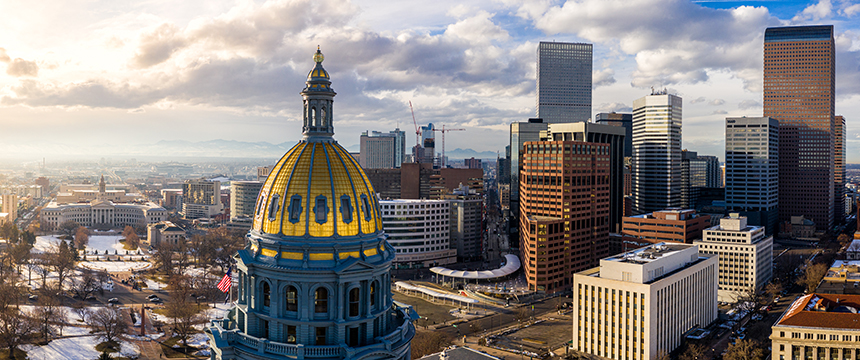
On April 13, 2020, the Denver City Council approved a new local license to regulate and implement medical cannabis research and development facilities, marking the beginning of the city’s efforts to update its cannabis rules. Specifically, the city council approved a bill for an ordinance which amends the Denver Medical Marijuana Code (Denver Rev. Mun. Code Ch. 24 Art. XII §§ 24.501, et seq.) to include regulations governing the new research and development license. The new license marks the first phase of the Department of Excise and Licenses’ (Department) plans to update Denver’s cannabis rules. The Department announced its intentions to update the cannabis rules at a stakeholder’s meeting held in March. During this meeting, the city revealed its plan to prioritize social equity in its cannabis programs, which is one of the main drivers to update its cannabis rules. The Department commissioned a report to assess its proposed social equity plan, which is expected to be completed by the end of April.
Because of the city’s focus on social equity, individuals applying for the new research and development license will be required to submit a social impact plan, which includes, among other things, a description of the applicants’: (i) diversity and inclusion practices in hiring and employment, (ii) sustainability practices, and (iii) plan to “foster participation in the regulated marijuana industry by people from communities that have been disproportionately harmed by marijuana prohibition and enforcement in order to positively impact those communities.” The inclusion of the above requirements is the first time the city has specifically focused on and included social equity requirements in its licensing process.
With this new license, Denver becomes the latest jurisdiction to put in place social equity requirements to receive cannabis licenses. A growing number of states have included social equity requirements in their cannabis programs (CA, IL, MA, MI, OH, PA), each approaching this important issue in a multitude of ways, with varying results. Some states included social equity as a key component of legalization – e.g., Massachusetts and Illinois. In other jurisdictions, which do not have significant statewide social equity requirements, regulations have been designed, in part, to reduce barriers to entry into the cannabis market. For example, in Oklahoma there are low licensing fees and no caps on the number of cannabis business licenses that may be issued. Another approach in such jurisdictions without statewide social equity laws is that cities are stepping up to address the issue, such as Denver. In addition to the new license requirements, Denver also recently implemented the Turn Over a New Leaf Program, which seeks to vacate low-level cannabis criminal convictions that occurred in the city prior to its legalization.
Denver Mayor Michael Hancock has not yet signed the bill approving the ordinance change, but is expected to do so soon. As such, the Department has not yet announced when applications will be available for the new license. Foley is tracking Denver’s efforts to update its cannabis rules and will continue to keep the community apprised of relevant related developments.
For more information, please contact your Foley relationship partner or the Foley colleagues listed below. Foley has created a multi-disciplinary and multi-jurisdictional team, which has prepared a wealth of topical client resources and is prepared to help our clients meet the legal and business challenges that the coronavirus outbreak is creating for stakeholders across a range of industries. Click here for Foley’s Coronavirus Resource Center to stay apprised of relevant developments, insights and resources to support your business during this challenging time. To receive this content directly in your inbox, click here and submit the form.
